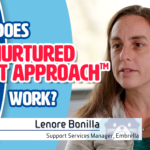When you adopt a newborn or young child, you may not know the difficulties he will face as he gets older. A newborn in foster care may be exposed to drugs and alcohol before entering into the world. Initially, it may not look like this exposure has affected him, but as the years pass the challenges he has to face become apparent. Once you recognize the funds provided aren’t enough to give him the support he needs, it may be time to learn how to renegotiate your adopted child’s subsidy.
How to Renegotiate Your Adopted Child’s Subsidy: Eligibility
The adoption subsidy was birthed from the Adoption Assistance and Child Welfare Act of 1980. Through this law, subsidies are provided to the parents of special needs children who have been adopted through foster care.
The adoption process is very intensive and involves numerous evaluations to ensure the child will be able to access resources to solidify his successful growth. All physical and mental challenges should be well documented so you can have evidence of these issues pre-dating the adoption. This is especially helpful if you ever need to renegotiate your adopted child’s subsidy. Your local child welfare agency should have provided you with documents throughout the adoption process, but it is up to you to collect any additional documentation after the adoption.
If your child’s condition changes, you can take steps to renegotiate the subsidy. One of the primary reasons adoptive parents renegotiate is because the child may need access to more medical, mental health or behavioral resources.
If your child acquires an illness that is not related to his history in foster care (e.g. Leukemia), it is your responsibility as the parent to ensure he has all of the medical attention he needs, as this is not covered by the subsidy.
How to Renegotiate Your Adopted Child’s Subsidy: The Process
It is very important to gather all paperwork that supports your need for more assistance. This includes but is not limited to: letters from doctors, copay receipts, records of medical expenses, etc. You can also, for example, obtain documentation from teachers, school counselors and therapists.
If you believe your adopted child may be showing small signs of something that is not easy to detect (e.g. Bipolar Disorder, Oppositional Defiant Disorder or Autism), it is imperative you make it known during the evaluation process. Proving he had specific conditions prior to closing the adoption is vital, even if they have not fully developed.
Once you have gathered all pertinent information, schedule an appointment with a worker in your local state adoption agency. They will ask you to supply all documents before you come in for an appointment, so make sure you are prepared. Your child’s current state will be evaluated and compared to the time he was initially adopted based on these documents.
Most states negotiate adoption subsidy rates according to current foster care rates. Adoptive parents should first know the rate their child would receive if he were in foster care. For rates by your state, click here. It is rare that the rate you try to negotiate would be higher than the foster care rate in your respective state. If there is proof the child’s current condition is so severe that, if he were put back into foster care, the board rate would increase, there is a better chance to receive a higher subsidy. This is, however, not promised. You will have to work very hard to advocate for your child to prove he needs a more specialized level of care.
To get started with the process in New Jersey, reach out to the Division of Child Protection and Permanency’s (DCP&P) Office of Adoption Operations. Along with providing post-adoption services (e.g. respite care, educational programs and advocacy), this unit within DCP&P determines if you are approved for an increase in subsidy. The Office of Adoption Operations can be reached at 609.888.7460, or you can visit DCP&P’s website. For in-depth information on adoption assistance in New Jersey, click here. You can also reach out to one of embrella’s Family Advocates for assistance at 800.222.0047.
For information on your respective state, visit the North American Council on Adoptable Children’s (NCAC) website.
Access a complete overview on the renegotiation process from the NCAC here.
How to Renegotiate Your Adopted Child’s Subsidy: Renegotiation Success
The success of the renegotiation will depend on you:
• Providing the proper documentation
• Showing clear evidence the family’s situation has changed
• Making sure the documentation provided meets specific guidelines to qualify for an increased subsidy in your respective state
The only way your child’s subsidy agreement can be modified or renegotiated is if you take the necessary steps. Remember, just because you decide to move forward to try to renegotiate or modify your child’s subsidy agreement does not mean he will be granted a higher rate or additional services. The good news, though, is going into this process with determination gives you a greater chance for success.



My childs adoption was rushed through, they said if I asked for subsidy now before we knew what he might need in the future, it would delay adoption by months and he still might not get it. We were fostering, we got him at 4 days old from the hospital, and although he did have drugs in his system, was not medically considered addicted. Now he has just turned 8 and has some serious issues we are moving through and has vision problems and sensory disorders and we need some help. We have insurance through my employer but that has recently changed, the copays have increased there are now deductibles, and my spouse lot their job and everything is costing more and more. His therapy, his prescriptions, his glasses (his clothes, his groceries!) and more.
Is it possible to apply for adoption subsidy when you did not apply for subsidy at the time of the adoption?
If so, how do I do it?
Hello Diane,
Thank you for reaching out to Foster and Adoptive Family Services (FAFS). I am sorry to hear about the difficulties your family has been encountering. A bit of good news in this is that there is the ability to apply for adoption subsidy even though your son was initially found to be ineligible. With that, you will need to make sure to have all of his medial, therapeutic and other needs documented. It sounds as if you have been keeping up on his appointments, so this should not be a problem. With reconsideration of adoption subsidy, per CP&P policy: “The family may apply if the child develops problems traceable to either his or her genetic heritage pre-adoptive experiences, which may not qualify him or her for subsidy.” It will need to be documented how his past (pre-natal substance use or possible family history of mental illness) plays into his current condition. To get this process started you will need to contact the Adoption Subsidy Unit at 1-800-847-5027. With subsidy, there is financial subsidy and medical subsidy. If he is found eligible for medical subsidy, the Medicaid plan would typically be secondary to your private insurance.
I hope this information has provided useful to you. If you need further assistance, you are able to call and speak to a FAFS Family Advocate by calling 800-222-0047.
– Lenore
should I sign a subsidy agreement letter before a amount is left blank ? I cant find a answer to this question ,, please help ,, cathryn koch
NJ Resource Parents receive a monthly board reimbursement or subsidy for each child placed in their home. This is also referred to in NJ as a board rate. Subsidy covers the child’s living expenses, such as food, shelter, personal allowance, general recreation activities, and cultural activities. NJ Division of Child Protection and Permanency determines the appropriate board rate by meeting with the resource parent, caseworker and CP&P nurse to participate in a Resource Family Care Rate Assessment, which reviews the circumstances of every child placed with a family. The initial review takes place at the time, or within 30 days, of placement. Based on guidelines, the appropriate rate for each child is determined. The caseworker then submits this rate for approval.
The child’s age and level of care are assessed by the Resource Family Care Rate Assessment. As a child in care ages in NJ, the rate is increased. The rate is also increased if a child has medical and/or other special needs. When a rate is established, the rate is reassessed every 3 months by the caseworker as per CP&P policy. To see NJ rates for children in care, you can visit our website at https://www.fafsonline.org/foster-care-board-rates-nj/ for more information. It is best to fully review a subsidy agreement fully with the caseworker and their supervisor if possible to review prior to signing a subsidy agreement whether for the child’s board rate or if the child is adopted an eligible for an adoption subsidy. Prior to signing you should ensure that all areas are completed on the agreement including the amount of the subsidy.
Every state works differently in regards to subsidies for children in care. Some states provide kinship families with subsidies while others do not. Some provide higher rates while others do not. It truly depends on the state you reside in that will reflect the subsidy the children will receive.
Corissa Kazar
Support Services Manager
I adopted a foster child at 3 years old. I had him since he was 3 months old. He was diagnosed with ADHD and Explosive Anger disorder. He is 12 years old. We got the normal rate at adoption. Would I be eligible for subsidy renegotiate? Also my 9 year old was adopted at 16 months. I had her since she was 2 days old. She was diagnosed with autism and mental retardation. Would she be eligible?